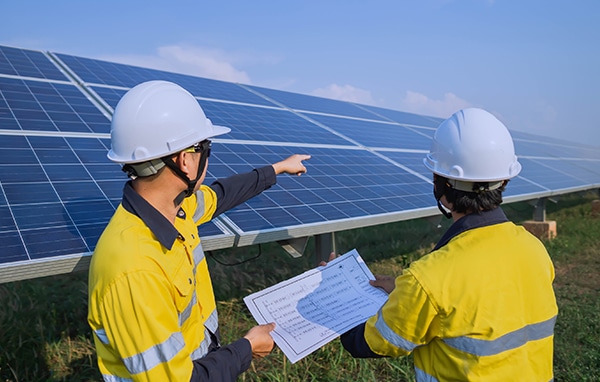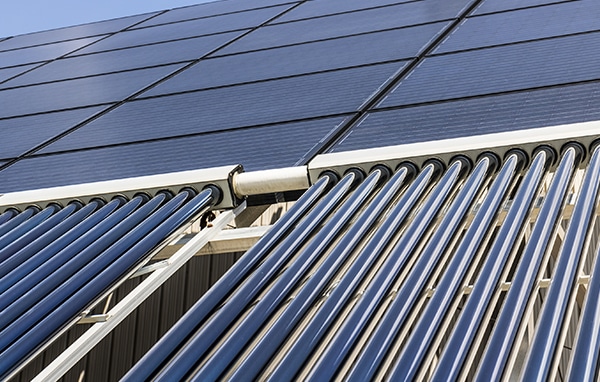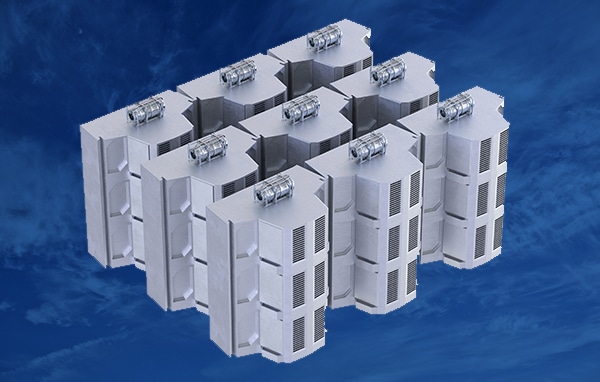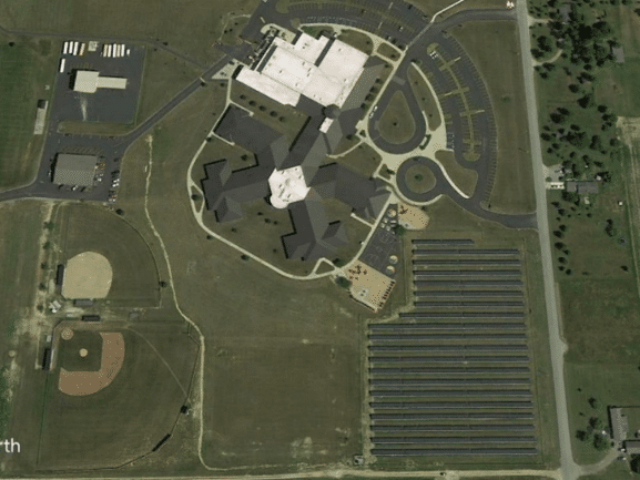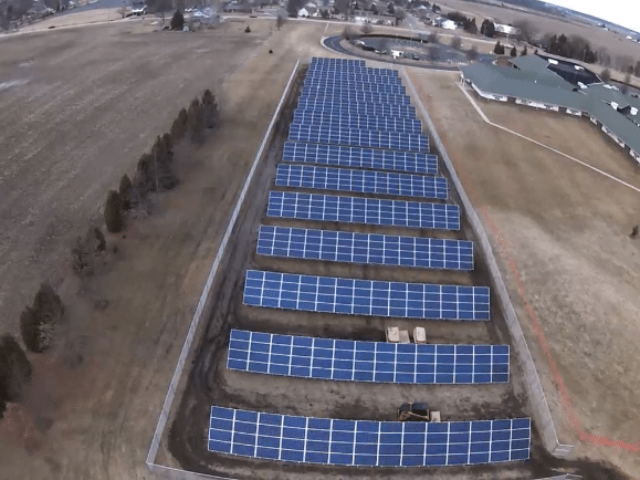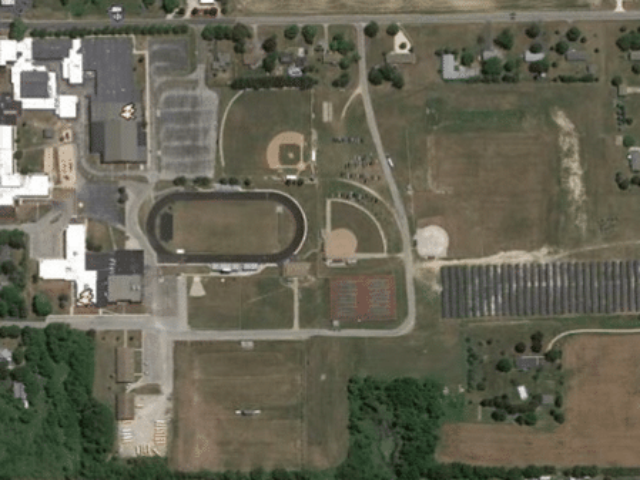Avisi Energy
Avisi Energy, Ltd. strives to be the best in market agent for changing the economics of how real estate owners reduce and procure their energy footprint. We accomplish our objectives by leveraging deep professional relationships in the engineering, finance and trade contractor markets. It will always be our goal to provide our clients with a turn-key solution, customized to each client, providing a permanent energy supply that reduces and locks in long term energy costs of all affects.
Our Projects
Our Process
At Avisi Energy, we develop with the goal that the end result has to be more valuable than the sum of its parts. This is why we take the time to help you understand each facet and its place in the process.
Frequently Asked Questions
A solar energy system creates usable power from sunshine. The two most commonly used types of solar energy technology in the Midwest are photovoltaic (PV) panels and solar thermal collectors. PV uses sunlight to generate electricity. It’s the same technology found on pocket calculators, just on a larger scale. Thermal solar uses sunlight to heat water, usually for a hot water supply or space heating.
PV panels contain a semiconductor material (typically silicon-based) which converts sunlight into direct-current (DC) electricity. Solar Electric systems generate electricity silently and without any moving parts. Sunlight falls on the solar array , generating DC electricity. That DC electricity is converted into AC electricity by the inverter. The AC electricity is fed into the electric meter and circuit breaker panel. The electricity either goes to appliances and lights, or to the grid, or some to each. This all happens silently and automatically every day.
At night and during cloudy weather, the solar system’s output is reduced or stopped; your building then gets electricity directly from the utility grid. In a Micro-Grid you are always connected to the grid, so you will have the power you need, at the time you need it.
When solar is producing power, it goes to reducing your utility usage at the time, so when there is excess it is spinning the meter backwards and storing it on the grid for later use.
Studies have proven solar panels can last between 30 & 35 years and sometimes more. Solar energy system degradation rates vary depending on the brand, as well as the climate where they’re installed but, recent data has shown modern solar systems are outperforming all expectations. According to an analysis by the National Renewable Energy Laboratory (NREL), some premium panel manufacturers offer degradation rates as low as 0.3% per year; and while other brands have higher degradation rates of up to 0.8% per year, that’s still a yearly average degradation rate of only 0.5%.
The economics of solar vary significantly depending on solar policies and incentives available and different market conditions. Module & Component costs (hard costs) are typically only about 65% of the total installed costs. These have been dropping significantly since 2000 due to demand and global supply and technological improvements. Soft costs (system design and installation) vary depending on the size, location, and design of a system. Every application+3 is different, and Avisi Energy can provide the best information on what it will cost to go solar. Once our customers begin exploring their options, they often find that the total up-front cost of solar is less relevant than the financing terms, return-on-investment, and cash flow calculations. Avisi Energy has teamed up with financing partners that offer low interest rates and flexible terms. For many customers, financing the solar array can means immediate cash savings on monthly bills.
Depending on who it is, your utility company may “net-meter” your production. This means that any extra power your array produces is banked for the future. You then receive a credit toward future energy bills or receive a check.
There is currently a 26% federal investment tax credit (ITC) for solar energy systems. Industrial, Commercial and agricultural customers can take advantage of this tax credit. This credit was extended in 2018, but the credit rate will reduce each year.
- 2019 – The solar Tax Credit remains at 30%
- 2020 – The Solar Tax Credit reduces to 26% deduction
- 2021 – The Solar Tax Credit reduces to 22% deduction
- 2022 – The Solar Tax Credit reduces to 10% deduction onward
In addition to the federal ITC, many states, counties, municipalities and utilities offer rebates or other incentives for solar energy technologies. Commercial and agricultural customers can also depreciate their arrays for additional tax benefits. The amount you can depreciate depends on your tax bracket. Solar is eligible for a 5-year recovery period.
When you install battery as part of your solar energy system, you are actually storing the extra energy your solar panels produce during peak hours rather than feeding it back into the electricity grid. With solar batteries, you maximize your ability to use the electricity generated by your solar panels on a day-to-day basis. During the times when you need more electricity than your solar panels are producing (later in the day, high demand time or at nighttime), you can use the solar energy you have stored. If your utility uses demand charges, you will benefit from solar batteries as well because you will avoid a higher fees by relying on your energy storage system instead.
Project Financing
Avisi Energy partners provide construction and term financing for Commercial Solar Projects. Financeable project structures range from traditional commercial solar PPAs, PACE programs, USDA/SBA Green Programs, Community Solar, Convential Bank Finance and Unrated Credit Offtakers. Our dedicated team will always work directly with you to get your unique project financed, focusing our proprietary underwriting to maximize savings and value.

Self-Funded

Solar Loan

PPA/Lease

PACE
Learn More
While third-party options remain, the most popular methods of financing commercial solar systems, plummeting equipment costs, and continued attractive tax incentives have resulted in many commercial customers choosing to purchase their systems outright. A cash transaction is a common choice for businesses with a substantial tax appetite who wish to take direct advantage of the 2020 26% Investment Tax Credit (ITC) and accelerated depreciation.
A Solar Loan is also a comon choice for businesses with substaintial tax appetite that wish to take advantage of the 26% Investment Tax Credit (ITC) and accelerated depreciation. These owners, though, are seeking the higest available percentage returns looking at short-term ITC/Depreciation utilization, long-term cash flows and energy cost stability. Companies using debt should be comfortable with the higher balance sheet leverage.
The PPA & Solar Lease are currently the most popular option and are a great choice for businesses with liited tax appetite. With this structure the financier/owner pays for the system equipment and installation, and maintains ownership of the system throughout the tax warranty period. The customer (facility owner then purchases the power generated at a lower-than-utility rate for the agreement term. Advantages for the business include no upfront or maintenance costs, and no performance risk if the system breaks down or fails to work properly due to lousy weather. These structures are ideal for high consumption businesses.
PACE plans are mechanisms through which solar systems can be financed by means of a loan that is repaid via a property tax assessment. They allow state and local governments to fund the costs of projects which are then paid back over terms of up to 25 years. The key to PACE is that its assessment is a debt on the property itself, not the property owner giving lenders significant collateral to make a funding approval.
Investors
Our investor partners work closely with our developers to ensure the investment in solar energy produces optimal returns and results. Through our proprietary underwriting model and renewable energy expertise, cash flows are maximized and predictable while risks are mitigated. Avisi Energy is accepting Indications of Interest (IOI) for investments in the above states. Our turn-key approach to Tax Equity Investments is clear concise and re-tradable. Click on any state below for a Confidential Information Memorandum (CIM) on opportunities near you.

